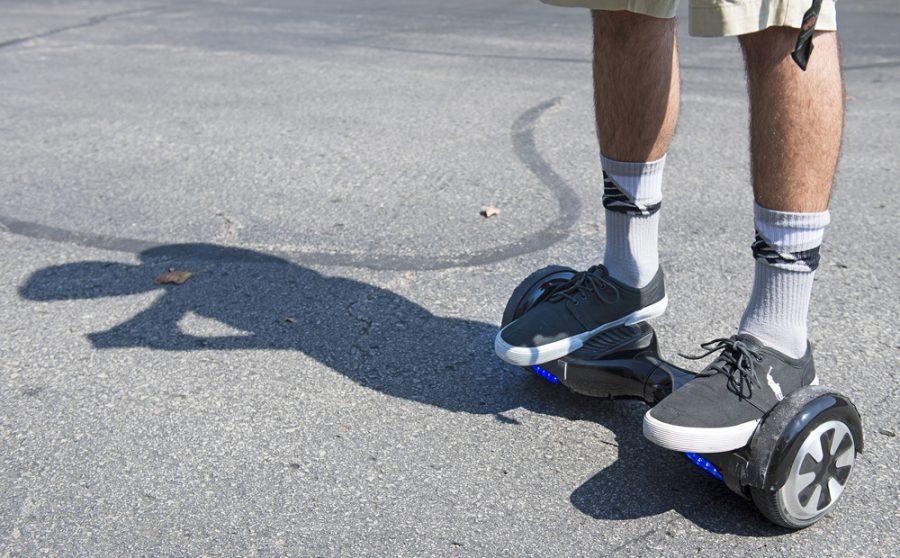On Jan. 6, an email was sent to Wake Forest students to notify them that hoverboards — self-balancing, double-wheeled, electronic skateboards that have become incredibly popular around the world within the last year — were banned this semester by Residence Life and Housing, who cited safety hazards as their reasoning.
They were one of the hottest gifts of this holiday season — but maybe a little too hot.
Despite their popularity with consumers, hoverboards have been banned by many due to them frequently catching on fire.
The lithium-ion batteries inside the board are flammable by nature and when they are not of high quality, they have a tendency to become engulfed in flames.
This is why they have been banned by many shipping companies, airlines and retailers. Additionally, they have been banned in public areas in the United Kingdom, New York City and other universities across the United States.
In the relatively short amount of time they have been on the market, the perception of hoverboards has changed from that of a fashionable new toy to a potential fire-producing machine.
Hoverboards can be a unique mode of transportation and a form of entertainment, but the risks involved create a hazard that the Wake Forest administration is unwilling to permit.
Wake Forest is among many universities, such as Louisiana State University, the University of Missouri and the University of Arkansas, that have banned hoverboards.
“Wake Forest took the step to ban hoverboards, or self-balancing skateboards, because it has been reported that these devices’ batteries can burst into flames — especially while being charged — resulting in a metal fire that can burn with intense heat,” said Penny Rue, vice president of student life.
“As a result, we are not willing to risk the safety of our community.”
The decision was made with the goal of promoting a safer campus. University administration consulted multiple safety organizations before they decided to deem the product as potentially dangerous.
“Like many institutions around the country, Wake Forest University has heeded the warnings by the Consumer Products Safety Commission with regard to the dangers associated with hoverboards,” said Donna McGalliard, dean of residence life. “After consultation with our own Environmental Health and Safety professionals and other university and local community partners, Wake Forest determined that this policy was necessary to keep our community safe.”
According to the updated Wake Forest Guide to Community Living, hoverboards may not be used, stored, or charged in any university owned or leased residence buildings.
If the policy is violated, the hoverboard will be taken and the student in possession could potentially face fines and a student conduct referral.
Taylor Ibelli, a senior, believes that the decision to ban hoverboards was right for the university.
“After hearing about the hoverboard explosion that destroyed a family’s home in Louisiana, I think banning hoverboards on campus is smart,” Ibelli said. “The most commonly used energy source, lithium ion batteries, is highly flammable and known for being extremely unstable. They are a ticking time bomb that can explode if your hoverboard charges incorrectly.”
In addition to being a fire hazard, hoverboards pose a risk for injury.
There have been many reports of hoverboard users falling off the motorized boards and sustaining injuries, but the primary reason that they have been banned in cities and universities alike is the potential for the boards to ignite.
However, some Wake Forest students, however, do not agree with the university banning hoverboard and consider it an inconvenience more than a preventative safety measure.
“Hoverboards are an awesome way to move around campus, especially for the athletes when we’re sore and tired,” said sophomore and Wake Forest football kicker Adam Centers. “I broke my leg this summer so it would have been helpful to have one so I could get to class on time,”
Though hoverboards could become the transportation and toy of the future, university administration believe they are unsafe and not worth the risk.








